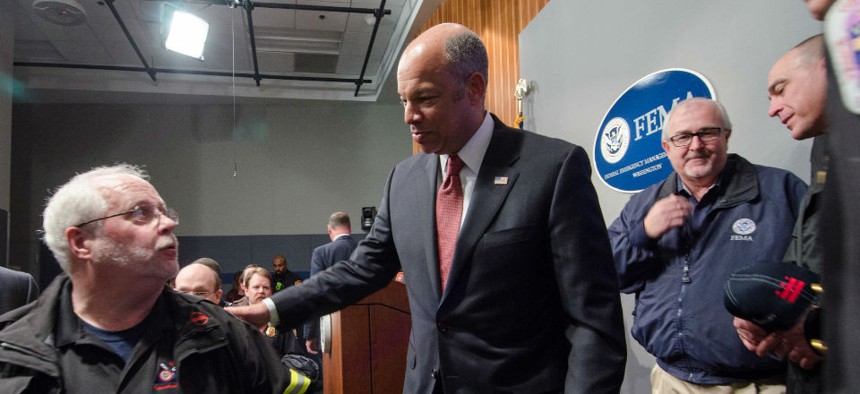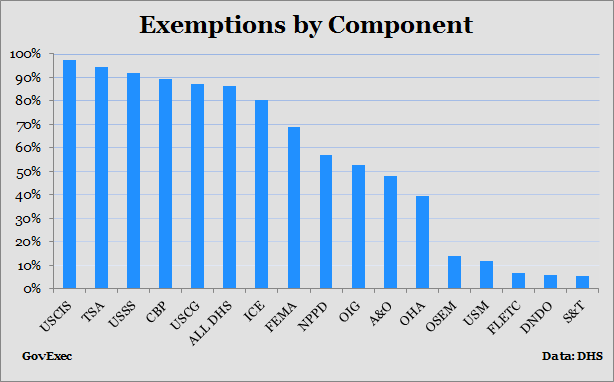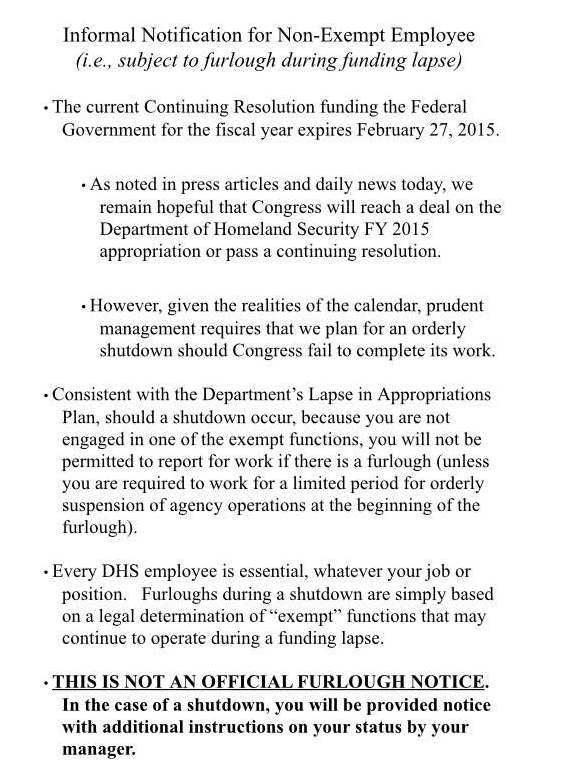
Homeland Security Secretary Jeh Johnson met with state and local law enforcement and emergency responders last week to discuss the potential shutdown. Jetta Disco/Homeland Security Department
Funding Impasse Is Already Disrupting DHS Operations
Plans for new technologies and equipment remain up in the air.
The Homeland Security Department avoided a shutdown on Friday, although it did so with just hours to spare and only temporarily.
The shutdown clock has been reset, once again with a Friday at midnight deadline. DHS Secretary Jeh Johnson cautioned Congress to avoid a short-term funding measure, saying the uncertainty it would create would damage employee morale and agency operations, but 11th hour legislative chaos left lawmakers without a longer term solution.
“Mere extension of a continuing resolution has many of the same negative impacts [of a shutdown],” Johnson wrote in a letter to congressional leadership last week. “A short-term continuing resolution exacerbates the uncertainty for my workforce and puts us back in the same position, on the brink of a shutdown just days from now.”
Congress ignored the warning and passed a one-week continuing resolution. About 30,000 DHS employees face furloughs come next week if a solution is not reached before midnight, March 6, and an additional 195,000 would report to work without pay.
“The exercise in anxiety continues for more than 200,000 dedicated DHS employees who deserve to be treated with dignity and respect given the critically important work they do,” said National Treasury Employees Union President Colleen Kelley.
Also under a CR, outstanding grant money could dry up, forcing employees at the Federal Emergency Management Agency and other DHS components to wrap up efforts in local communities before their work is complete. The department is largely prevented from engaging in any long-term planning efforts as it cannot legally spend money on new projects. While avoiding an appropriations lapse has temporarily prevented the Coast Guard and Border Patrol from having to curtail routine patrols and enforcement efforts, the status of contract planning for new technologies and equipment such as boats remains up in the air.
To some extent, the damage of the looming funding crisis has already been done, even if a shutdown is again avoided this week. Headquarters officials have wasted countless hours in recent weeks on contingency planning for a shutdown and determining who would be furloughed. The secretary and his staff spent much of last week making public appearances and lobbying members of Congress to raise awareness of the negative impacts of a shutdown.
“In these challenging times, when we’re concerned about terrorist organizations such as ISIL, al Qaeda the Arabian Peninsula and so forth . . . it is even absurd to be having this conversation,” Johnson said last week. “It is even absurd that I have to spend a very, very large part of my work week simply defending paying our people to work.”
Employees facing unpaid time off in the event of a shutdown have already received informal furlough notices from DHS. While the message assured workers, “Every DHS employee is essential, whatever your position,” a furlough is bound to hurt morale at an agency where job satisfaction is already low.
Here’s the informal notice, obtained by Government Executive:
DHS updated its furlough plan publicly late Friday. The overall figures have not changed significantly since the last government shutdown in 2013. Nearly 87 percent of DHS employees would still report to work, either because their salaries are paid by customer fees or multi-year appropriations, or because their job involves protecting life or property. Here is an updated look at how each component would be affected by a shutdown:

NEXT STORY: IRS Welcomes Jump in Taxpayers Using Its Website








